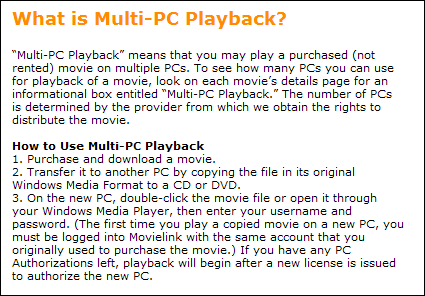TG Daily Top-10: Technology disappointments of 2006
#3 Digital Rights Management
We know, no one wants to talk about digital rights management (DRM). But as inconvenient as it may be, I simply have to. DRM has evolved into one of the most spectacular euphemisms in the IT and entertainment industry. Today's concepts that describe DRM do not deserve that name. What about "content access restriction management" instead?
Here's what is happening: Content owners and technology firms need to get together to enable what is believed will be the next big growth opportunity for the entertainment and IT industry. Technology companies are starving to make video content available to their customers, but many content owners typically have little faith in new technologies after they have seen what can happen if technology has its way (see the original Napster.)
Content firms, sitting on a potentially unlimited revenue opportunity of "premium" content, have the upper hand in this game. Which means that content firms determine how content is accessed and how you can use it. There is nothing wrong with this picture if you consider the huge investments in the production of music and films; but some firms appear to have a somehow distorted view of fair use of content.
With more and more digital content and DRM becoming available, we are finding ourselves in a trial-and-error situation - an environment where content owners are testing how much DRM we are willing to accept. Probably one of the more visible versions of DRM deployed today are movie download services such as CinemaNow and MovieLink.
On CinemaNow, you can download movies for prices up to $15, but the content is not intended to be moved around the house: Some movies may play on one PC, others on up to three PCs. Maybe I am missing something here, but if I am paying for a download pretty much as much as I would for a DVD, I want to be able to burn it onto a DVD and I want to play it on any DVD player in the house. A three-PC restriction is ridiculous.

How to playback downloaded Movielink movies on multiple PCs. Remember the times when you didn't need a manual to watch a video?
MovieLink, a joint venture of Metro-Goldwyn-Mayer Studios, Paramount Pictures, Sony Pictures Entertainment, Universal Studios and Warner Bros. Studios, charges up to $20 for a movie. These movies can be played on up to three PCs as well, but every new PC that plays the content will have to be logged on to the Internet and needs to be authorized by MovieLink. Content can be burned on CDs and DVDs, but cannot be played on regular DVD players. MovieLink recently acquired a license for a technology that would allow customers to burn a downloaded movie onto a DVD and play it on a regular DVD player, but it is unclear when such a deal will be available and how much it will cost. Given the fact that movies are already priced at $20, quite frankly, it should be free.
HD content will be a whole new topic as technologies such as HDMI and HDCP ("High-Bandwidth Digital Content Protection") are adding additional hurdles and inconveniences for the consumer.
Gladly, there are some positive signs that DRM may be heading into the right direction. In an interview earlier this year, Jerry Pierce, senior vice president of technology at Universal Pictures, told us that his company is fully aware that DRM will not stop piracy, but is rather aimed at preventing mass-piracy. "I don't think DRM is about a certain technology, DRM is about usage rules. If consumers purchase an HD version of one of our movies and if they make a same quality copy and they can hand that to their friends - and if that was easy to do - they cross the line." In regards to private copies, Pierce said: "A properly controlled private copy, with a version that runs on the consumer's hard drive and their media server, yes, I believe that there should be ways to enable that."
The Internet is full of examples that consumers are willing to accept reasonable content protection mechanisms in exchange for ease-of-use and the simple request for multi-device playback (see "iTunes"). But in its current state, exaggerated DRM is without any doubt one of the major reasons why, for example, digital movie downloads are simply no replacement for regular DVDs.
Stay on the Cutting Edge
Join the experts who read Tom's Hardware for the inside track on enthusiast PC tech news — and have for over 25 years. We'll send breaking news and in-depth reviews of CPUs, GPUs, AI, maker hardware and more straight to your inbox.
Most Popular

